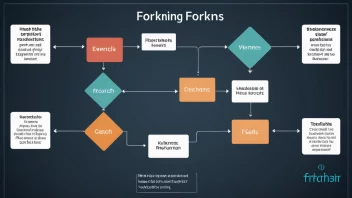Introduction
In this article, you will learn how blockchain technology can revolutionize sports management by enhancing data integrity, ensuring transparency, and improving fan engagement. We will guide you through the key concepts and applications of blockchain in the sports industry, providing a step-by-step framework for implementing these technologies effectively.
Step 1: Understanding Blockchain Technology
Before diving into its applications, it's crucial to understand what blockchain technology is. At its core, blockchain is a decentralized ledger that records transactions across multiple computers. This ensures that the data cannot be altered retroactively, promoting trust and security.
Key Characteristics of Blockchain
- Decentralization: No central authority controls the network.
- Transparency: All transactions are visible to participants.
- Immutability: Once recorded, transactions cannot be changed.
- Security: Cryptographic hashing protects data integrity.
Step 2: Identifying Applications in Sports Management
Blockchain has numerous applications in sports management, including:
- Ticketing: Use blockchain to create a secure, transparent ticketing system that reduces fraud.
- Player Contracts: Smart contracts can automate agreements and ensure that terms are met.
- Fan Engagement: Blockchain can facilitate loyalty programs and enhance fan interaction.
- Data Management: Keep player statistics and performance data secure and immutable.
Step 3: Implementing Blockchain Solutions
To implement blockchain solutions in sports management, follow these guidelines:
1. Choose the Right Blockchain Platform
Select a blockchain platform that fits your needs. Popular options include Ethereum, Hyperledger, and Binance Smart Chain, each with unique features.
2. Define Your Use Case
Identify specific use cases where blockchain can add value. Focus on areas like ticket sales, contract management, or fan engagement.
3. Develop a Prototype
Create a prototype to test your blockchain application. Start small with a limited feature set to validate your concept.
4. Collaborate with Stakeholders
Engage with stakeholders, including fans, teams, and sponsors, to gather feedback and refine your application.
5. Ensure Compliance
Stay informed about legal regulations surrounding blockchain technology in sports, especially concerning data protection and consumer rights.
Step 4: Case Studies
Several organizations have successfully integrated blockchain into sports management:
- Chiliz: A blockchain-based platform that allows sports fans to buy tokens to vote on club decisions.
- NBA Top Shot: A marketplace for buying and selling officially licensed NBA collectible highlights on blockchain.
- FC Barcelona: The club has started to use blockchain for ticket sales to improve transparency and reduce ticket scalping.
Step 5: Evaluating Success
After implementation, it’s essential to evaluate the success of your blockchain project:
- Collect Feedback: Gather user feedback to improve features and usability.
- Monitor Performance: Analyze data to assess the impact on sales, engagement, and security.
- Iterate: Make necessary adjustments based on feedback and performance analysis.
Conclusion
In summary, leveraging blockchain technology in sports management can significantly improve transparency, security, and fan engagement. By understanding the technology, identifying relevant applications, following implementation steps, and learning from successful case studies, sports organizations can position themselves for future success. Stay proactive, embrace innovation, and be prepared to adapt as blockchain technology continues to evolve.






